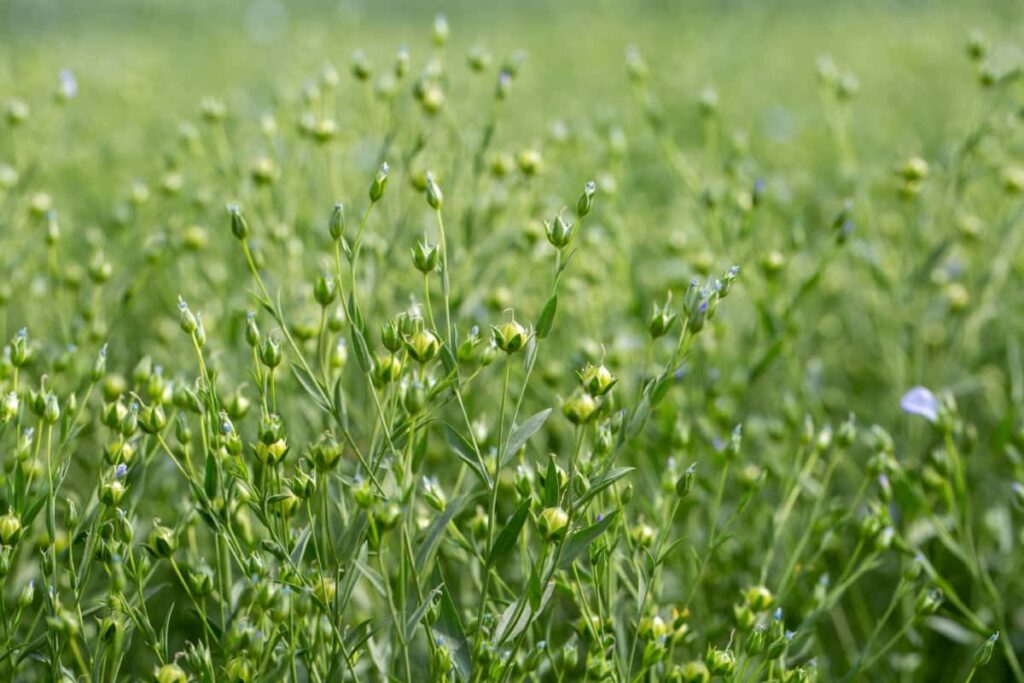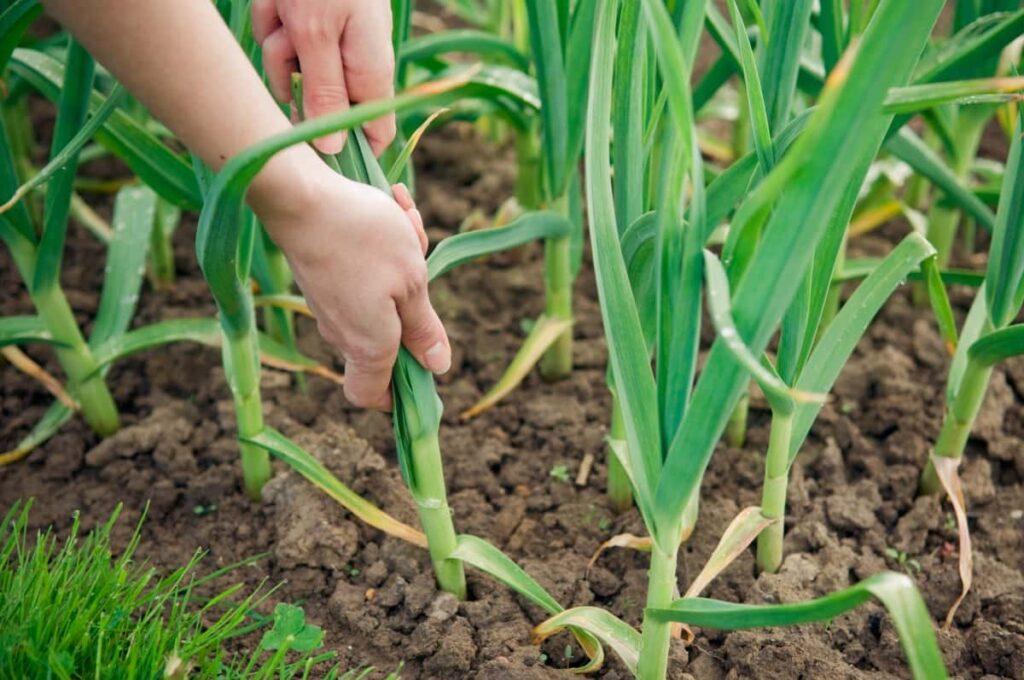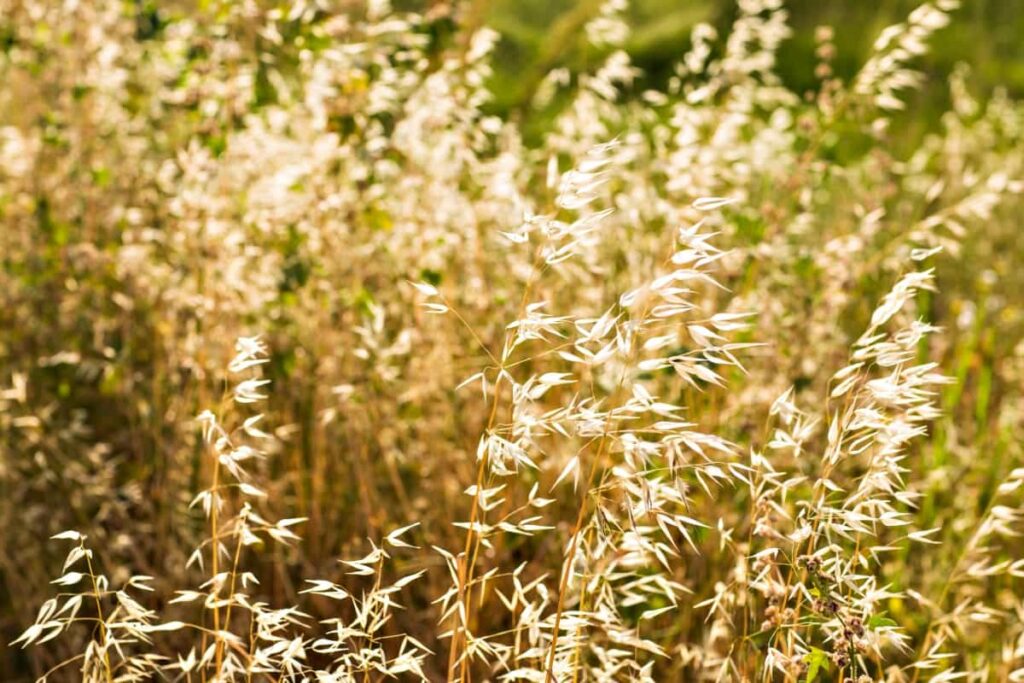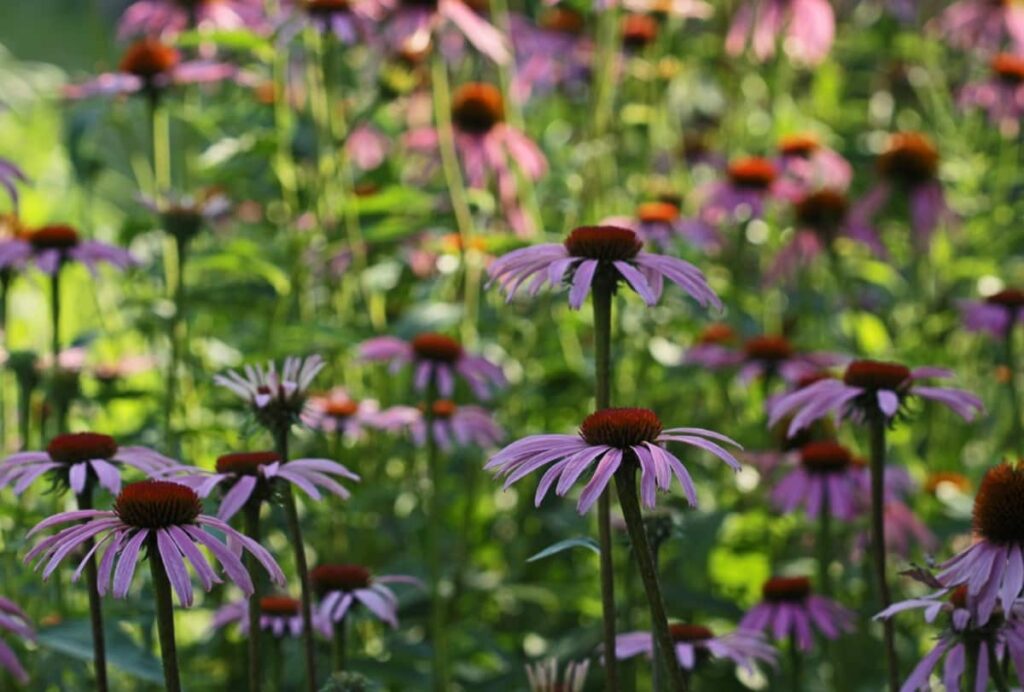Goats require a balanced diet to thrive and stay healthy like other living creatures. And when it comes to their nutrition, plants play a crucial role. Plants provide goats with essential nutrients, vitamins, minerals, and fiber for their well-being. Providing the right plants for your goats can significantly impact their overall health and well-being.
Best Plants for Goats
Alfalfa: Best Plant for Goat Nutrition
This nutrient-rich plant is a staple in many goat diets and offers many benefits. Alfalfa is packed with essential vitamins and minerals crucial for maintaining good overall health in goats. It is a good source of protein, calcium, magnesium, and potassium – all vital nutrients supporting the growth and development of healthy bones and organs. Additionally, alfalfa provides goats with plenty of fiber, which aids in digestion and helps prevent issues like bloat or constipation. This makes it ideal for promoting proper gut health in your animals.
Flax: Best Plant for Goat Fiber
Flax, also known as linseed, is a fantastic plant that offers numerous benefits for goats. Not only is it a great source of nutrition, but it’s also perfect for promoting healthy fiber growth in these curious creatures. Goats love to munch on flax leaves and stems, rich in essential nutrients like protein, vitamins, and minerals. These elements contribute to their overall well-being and help maintain a shiny coat.

Garlic: Best Plant for Goat Health
Garlic is not only a flavorful addition to our meals, but it also offers numerous health benefits for goats. This powerful plant is known for its antimicrobial and immune-boosting properties, making it an excellent choice for promoting goat health. Garlic helps in preventing parasites in goats. Its natural compounds act as a deterrent to internal parasites such as worms.
In case you missed it: How to Utilize Goats for Pest Control in Agroforestry Systems

By including garlic in their diet or offering them garlic supplements, you can help keep these troublesome parasites at bay. Furthermore, garlic has been shown to have antibacterial properties. This means that it can help support the overall immune system of your goats. Garlic can also improve digestion in goats.
Clover: Best Plant for Goat Milk Production
This versatile legume provides essential nutrients for goats and contributes to their milk’s overall flavor and richness. Clover is rich in protein, vitamins, and minerals vital for maintaining a healthy and productive milking herd. It contains high calcium levels crucial for strong bones and optimal milk production.
Additionally, clover offers a good balance of carbohydrates and fiber, keeping goats satisfied and aiding digestion. Furthermore, clover has been known to increase lactation duration in dairy goats. This means more milk available for consumption or processing into delicious cheeses, yogurts, or other dairy products.
Tea Tree: Best Plant for Goat Parasite Control
Known for its potent properties, the tea tree has long been used for medicinal purposes. The active compounds in tea tree oil have powerful anti-parasitic properties that can effectively repel and kill external parasites such as ticks, mites, and lice. Using a diluted tea tree oil solution as a natural spray or dip, we can protect our goats from these pesky critters without relying on harsh chemical treatments. Always consult your veterinarian before introducing new plants into a goat’s diet.
Oat Straw: Best Plant for Goat Coat Condition
Oat straw contains high levels of silica, which helps improve the texture of the goat’s coat. Feeding your goats oat straw regularly can help prevent dryness, dullness, or excessive shedding. It adds an extra protection layer against environmental factors that may harm their coats. Remember to gradually introduce new plants into their diet to avoid digestive upsets. Monitoring your goats’ reactions while introducing oat straw will ensure they benefit from its nourishing properties without experiencing any adverse effects.
In case you missed it: Pasture Management for Goats: Grazing Systems and Forage Selection

Apple Cider Vinegar: Best Plant for Goat Hoof Health
The high acidity in apple cider vinegar helps create an unfavorable environment for harmful bacteria and fungi that can cause hoof infections. Regularly adding diluted apple cider vinegar to your goats’ drinking water or feed can help prevent common hoof ailments such as thrush or foot rot.
It also contains essential minerals crucial for maintaining strong and resilient hooves. These minerals contribute to the overall strength and integrity of the hooves, reducing the risk of cracks or splits. Always dilute the apple cider vinegar before offering it to your goats. A tablespoon per gallon of water is usually sufficient.
Timothy Grass: Best Plant for Goat Reproduction
Timothy Grass is an excellent plant to have in their diet. This grass species is known for its high nutritional value, which can benefit goats during breeding and gestation periods. It provides essential nutrients like protein and fiber crucial for maintaining a healthy reproductive system in goats.
Including Timothy Grass as part of a well-balanced diet for breeding goats can significantly improve their reproductive performance. So, if you want to enhance your goat herd’s reproduction capabilities naturally, consider adding Timothy Grass into their grazing rotation or providing it as supplemental feed during breeding seasons.
Echinacea: Best Plant for Goat Immune System
Echinacea is one of the best plants you can give your goats to support their immune system and keep them healthy. The benefit of Echinacea is its ability to stimulate goat’s white blood cell production, which is essential for fighting off infections and diseases. By feeding plants into your goat’s diet, you can help strengthen their immune response and reduce the risk of illness.
In case you missed it: Effective Goat Health Management Practices: Preventing and Treating Common Diseases

Not only does Echinacea support overall immune function, but it also possesses anti-inflammatory properties. This means that if your goat gets sick or injured, Echinacea can aid in reducing inflammation and promoting faster healing. Another great thing about Echinacea is that it’s easy to incorporate into your goat’s diet.
Plants to Avoid when Raising Goats
Daffodil – Although these vibrant flowers may add beauty and color to your garden, they can be highly toxic if ingested by goats. Symptoms include nausea, vomiting, diarrhea, and severe abdominal pain.
Larkspur – While not necessarily fatal, larkspur can make goats very sick if consumed in large quantities. Removing this plant from areas where your goats have access is best.
Boxwood – It is another offender that goat owners should watch out for. This shrub contains steroidal alkaloids that are highly poisonous to goats. It is crucial to keep them away from boxwood plants or remove them entirely from their grazing areas.
Bluebonnet – It may seem harmless with its beautiful blue blossoms, but it can be fatal if eaten in large amounts by goats. Identifying this plant and ensuring your goats cannot access it is essential.
Rhododendron and Azalea are two more avoiding plants for goat owners due to their toxicity levels. These ornamental flowering shrubs contain substances that can harm or even kill your beloved animals. Other plants such as dog fennel, eastern baccharis, honeysuckle, nightshade, pokeweed, red root pigweed, and black cherry should also be kept away from grazing areas.
Frequently Asked Questions on Best Plants for Goats
What are the Best Plants to Feed Goats?
When feeding goats, a diverse and nutrient-rich diet is key. Some of the best plants for feeding goats include Alfalfa, Tea tree, Echinacea, etc. These provide a good balance of fiber and nutrients, supporting their digestive health.
Are All Plants Safe for Goats?
Unfortunately, not. Some plants are toxic to goats and must be avoided at all costs. These include dog fennel, honeysuckle, nightshade, pokeweed, red root pigweed, etc.
What Time Should I Feed My Goats with Plants?
Goats are natural grazers, so providing access to fresh pasture or vegetation throughout the day is ideal.
What are Some Signs That a Plant Might Be Toxic To My Goat?
It could indicate poisoning if you notice symptoms such as diarrhea, vomiting, or excessive drooling after your goat has eaten a particular plant. In such cases, contact your veterinarian immediately.
Conclusion
Plants provide essential nutrients that help support the growth and development of goats. When feeding goats, providing them with various plants is necessary for their overall health and nutrition. Garlic, for instance, is known for its antibacterial properties, which can help keep goats resistant to common infections.
- Types of Grass Growing for Goat Farm
- How to Train Goats for Milking: A Beginners Guide
- Goat Milking Practices and Equipment: A Beginner’s Guide
- Goat Farming for Fiber: Producing Mohair and Cashmere
- Maximizing Goat Milk Production: Tips for Dairy Goat Farmers
- Goat Farming as a Family Business: Strategies for Success
- Profitable Kenya Goat Breeds for Commercial Dairy and Meat Business
- Unlock the Secrets of Oberhasli Goat: Discover Raising and Management Practices
- Ultimate Guide to Myotonic Goats: Explore Profile to Raising